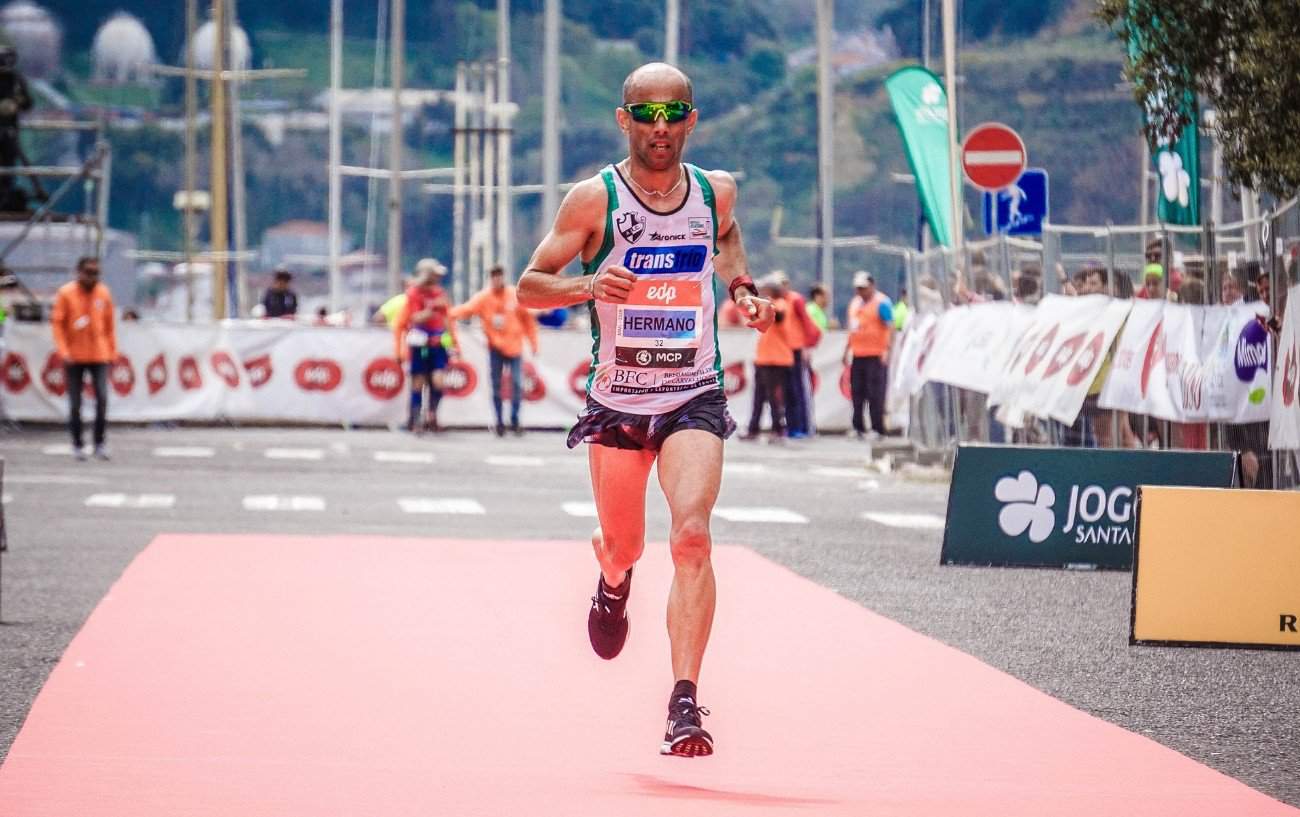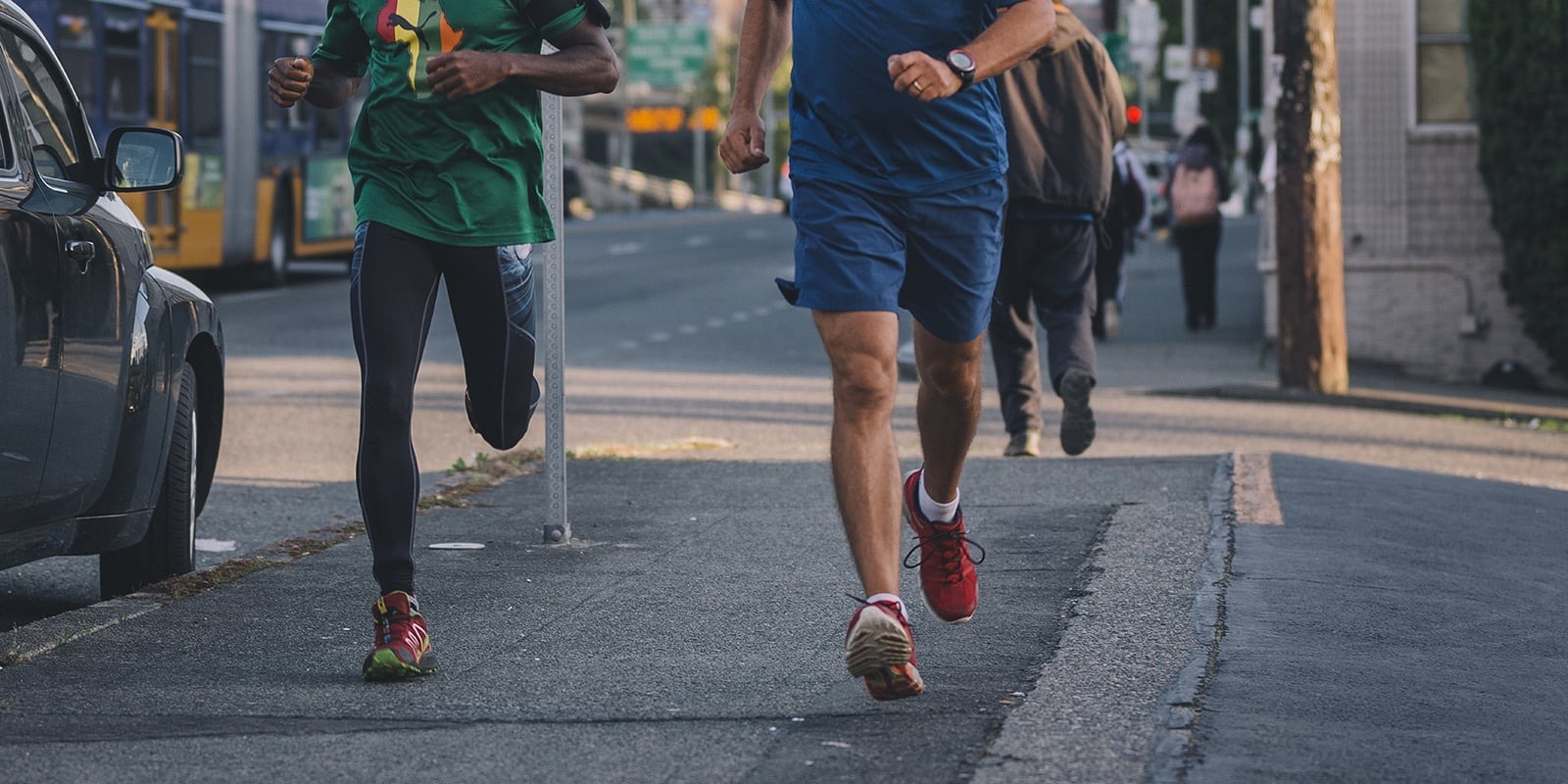

Featured
How To Run A Marathon Without Training
Published: November 15, 2023
Discover the secrets to running a marathon without training! Our featured guide will show you how to conquer the race and achieve your goals, all without hours of preparation.
Introduction
Running a marathon is a tremendous physical and mental challenge that requires months of dedicated training. However, life can often throw unexpected obstacles in our path, making it difficult to commit to a rigorous training plan. Despite the overwhelming consensus that proper training is essential for successfully completing a marathon, there are instances where circumstances may prevent you from adequately preparing for the event.
In this article, we will explore the concept of running a marathon without training and provide some tips and strategies for those who find themselves in this predicament. While it is important to note that training is the recommended approach for marathon preparation, we understand that there are situations where running a marathon without training may be your only option.
Before diving into the details, it is crucial to acknowledge that undertaking a marathon without training is not ideal and can lead to increased risk of injury and a less enjoyable race day experience. However, if you find yourself in this situation and are determined to cross that finish line, it is essential to approach the race with caution and a realistic mindset. Let’s explore the various aspects of running a marathon without training.
Understanding the Importance of Training
Training is a crucial component of marathon preparation as it helps build the necessary physical fitness, endurance, and mental resilience to tackle the 26.2-mile distance. Whether you are a seasoned runner or a novice, training allows your body to adapt to the demands of long-distance running and reduces the risk of injuries.
Regular training helps strengthen your muscles, improves cardiovascular fitness, and enhances your body’s ability to efficiently use oxygen. It also enables you to gradually increase your mileage, allowing your joints and connective tissues to adapt and become more resilient.
Additionally, training plays a significant role in mental preparedness. Long runs and speed workouts not only build physical stamina but also boost your confidence, mental toughness, and race strategy. It provides an opportunity to practice fueling, pacing, and handling various challenges that may arise during the race.
By following a structured training plan, you create a foundation that enables you to gauge your progress, set realistic goals, and make informed adjustments. Training also helps you identify weaknesses and areas for improvement, allowing you to address them before race day.
Without proper training, your body may not be adequately conditioned to handle the stress and demands of a marathon. Running long distances without a solid training base increases the risk of overuse injuries such as shin splints, stress fractures, and tendonitis. It also puts strain on your cardiovascular system, increasing the likelihood of experiencing exhaustion or hitting the infamous “wall” during the race.
Moreover, without the mental and emotional preparation that comes from training, you may struggle to overcome the inevitable discomfort and mental barriers that arise during a marathon. The lack of race-day experience can make it challenging to navigate pacing, hydration, and fueling strategies, and can lead to an overall less enjoyable and satisfying marathon experience.
Setting Realistic Expectations
When running a marathon without training, it is vital to set realistic expectations for yourself. Understand that tackling a marathon without proper preparation will be challenging, and you may not achieve the same results as if you had trained extensively.
Firstly, it is crucial to adjust your goals. Instead of aiming for a personal record or a specific finishing time, focus on completing the marathon and enjoying the experience. Embrace the journey and celebrate the fact that you are taking on such a monumental challenge without adequate training.
Keep in mind that running a marathon is a significant physical undertaking, even for well-trained individuals. Therefore, when running without training, it is essential to accept that you may experience more fatigue, discomfort, and slower times than you would under optimal training conditions.
Another aspect to consider is that walking during the marathon may be necessary. It is perfectly acceptable and even common for participants to incorporate walking breaks, especially if they haven’t trained adequately. Embrace walking as a strategy to conserve energy and prevent burnout during the race.
Furthermore, be prepared for the possibility of not meeting your desired time goals or even needing to stop before completing the full distance. Running a marathon without training significantly increases the risk of hitting physical or mental walls along the way. Listen to your body and prioritize your well-being over pushing through an injury or extreme exhaustion.
Lastly, keep in mind that running a marathon without training is an accomplishment in itself. Completing the full distance, regardless of the time it takes, is an incredible feat that many individuals never achieve. Embrace the challenge, accept the limitations, and be proud of your determination to take on this endeavor.
Developing a Pre-Marathon Routine
Although you may not have been able to train extensively, developing a pre-marathon routine can still greatly benefit your race day performance. Establishing a routine helps set a positive mindset, prepares your body for the demands of the marathon, and allows you to make the most of the training you have managed to fit in.
First and foremost, prioritize rest and recovery in the days leading up to the marathon. Ensure you are getting adequate sleep and take rest days to allow your body to recover from any last-minute training attempts. Overexerting yourself in the final days will only increase the risk of injury or fatigue on race day.
In the week leading up to the marathon, focus on maintaining a healthy and nutritious diet. Make sure to consume a balance of carbohydrates, proteins, and healthy fats to provide the energy your body needs for the race. Avoid trying any new foods or experimenting with your diet, as you don’t want to risk any digestive discomfort.
Hydration is also key during this time. Drink plenty of water throughout the day, and consider incorporating electrolyte-rich beverages to replenish your body’s mineral stores. However, be cautious not to overhydrate, as this can lead to a bloated or uncomfortable feeling during the race.
Additionally, it’s important to have a clothing and gear strategy in place. Wear comfortable, well-fitting running clothes that you have previously used for long runs or races. Avoid trying out new shoes or socks on race day to minimize the risk of blisters or discomfort.
Plan your pre-race meals carefully, ensuring you give yourself enough time to properly digest before the race. Stick to familiar foods that you have eaten before long runs or races and avoid experimenting with new foods that may cause stomach issues.
Lastly, mentally prepare yourself for the marathon. Visualize yourself crossing the finish line and remind yourself of your commitment and determination. Consider creating a motivational playlist or gathering motivational quotes that you can refer to during the race.
While a pre-marathon routine can help optimize your performance, it’s important to remember that it cannot replace the benefits of proper training. Be realistic about your goals and be prepared to adapt as necessary during the race.
Focusing on Nutrition and Hydration
When running a marathon without training, paying close attention to your nutrition and hydration is crucial. Proper fueling and hydration can help maximize your performance and minimize the risk of hitting the wall or experiencing other physical setbacks during the race.
Start by ensuring you have a well-balanced meal before the marathon. Aim for a meal that includes complex carbohydrates, lean proteins, and healthy fats. This combination will provide you with sustained energy throughout the race. Avoid high-fiber foods or anything that may cause digestive distress.
During the race, it’s important to have a plan for fueling. While you may not have conducted long training runs to test various fueling strategies, aim to consume easily digestible sources of carbohydrates such as energy gels, sports drinks, or fruit. Experiment with different products during shorter runs leading up to the marathon to find what works best for you.
Hydration is equally important, especially during longer races. Take advantage of the water and electrolyte stations along the course and listen to your body’s cues for thirst. Sip on water or electrolyte beverages throughout the race to stay adequately hydrated.
While it may be tempting to try new products or supplements on race day, stick to what you are familiar with. Now is not the time to experiment with new energy bars or sports drinks that may upset your stomach or cause discomfort during the race.
Remember to pace your fueling and hydration, rather than waiting until you feel completely depleted or thirsty. This will help ensure a steady stream of energy and hydration throughout the race.
In addition to during the race, it’s important to focus on post-marathon nutrition and hydration as well. Replenish your body with a combination of carbohydrates and protein to aid in muscle recovery. Hydrate with water or sports drinks to replace the fluids lost during the race.
Overall, while you may not have trained extensively, focusing on proper nutrition and hydration can greatly impact your marathon experience. By fueling your body with the right nutrients and staying hydrated, you increase your chances of successfully completing the race.
Mental Preparation for the Marathon
Mental preparation plays a critical role in running a marathon without prior training. While physical fitness is important, having the right mindset can help you overcome challenges, stay focused, and successfully complete the race.
Firstly, set realistic expectations and embrace the fact that running a marathon without training is a significant challenge. Accept that you may face physical discomfort and fatigue, and be prepared to push through mental barriers along the way.
Visualize yourself crossing the finish line and achieving your goal. Create a mental image of success and use it as motivation during the race. Remind yourself of your determination and the reasons that drove you to undertake this challenge.
Break the race down into smaller, manageable segments. Instead of focusing on the entire 26.2 miles, focus on running from one water station to the next or reaching certain milestones along the way. By setting mini goals, you can maintain a sense of progress and stay motivated.
Use positive self-talk to stay encouraged and motivated. Replace negative thoughts with positive affirmations, such as “I am strong,” “I can do this,” and “I am capable of finishing this marathon.” Believe in yourself and your ability to overcome any challenges that may arise.
Consider finding a mantra or phrase that resonates with you and use it as a source of inspiration. Repeat it to yourself when times get tough, and let it push you forward. Examples could include “Strong and steady,” “One step at a time,” or “I am unstoppable.”
Stay present and focused during the race. Instead of getting caught up in how much distance is left or how tired you may feel, focus on your breath, your form, and the rhythm of your footsteps. Disconnect from any negative thoughts and stay in the moment.
Lastly, draw strength from the support of the crowd and fellow participants. The energy and encouragement from spectators can provide an incredible boost when you need it most. Engage with the crowd, feed off their enthusiasm, and let their cheers propel you forward.
Remember, running a marathon without training is a mental and physical challenge, but with the right mindset, you can overcome obstacles and achieve your goals. Stay positive, stay focused, and embrace the mental resilience that comes with taking on this extraordinary feat.
Tips for Running Without Training
Running a marathon without training is not ideal, but if you find yourself in this situation, here are some tips to help you navigate the race:
- Start slow: It’s important to pace yourself from the beginning. Resist the temptation to sprint at the start and instead focus on conserving energy for the long haul.
- Listen to your body: Pay close attention to any signs of pain or discomfort during the race. If you experience sharp or persistent pain, it’s crucial to stop and seek medical assistance to prevent further injury.
- Take walking breaks: Incorporate walking breaks throughout the race to give your body a chance to recover and reduce the risk of overexertion. Walk for a set distance or time before resuming running.
- Stay mentally strong: Running a marathon without training requires resilience. Stay positive, use visualization techniques, and remind yourself of your determination to finish the race.
- Mind your form: Focus on maintaining good running form to minimize the risk of injury and maximize efficiency. Keep your posture upright, relax your shoulders, and land with a midfoot strike.
- Utilize aid stations: Take advantage of the water, sports drink, and fuel available at aid stations. Stay hydrated and replenish your energy throughout the race.
- Find a buddy: Running with a friend or joining a group can provide additional motivation and support during the race. Encourage each other and share the experience.
- Break the distance into smaller goals: Mentally divide the marathon into smaller segments and focus on reaching checkpoints or mile markers. Celebrate each milestone as you progress toward the finish line.
- Stay fueled: Even though you may not have trained extensively, fueling your body during the race is important. Experiment with different energy gels or snacks during shorter runs to determine what works best for you.
- Celebrate your accomplishment: Regardless of your finishing time or the challenges you faced, crossing the marathon finish line is an incredible feat. Be proud of your determination and perseverance.
Remember, running a marathon without training poses a higher risk of injury and may result in a more challenging race experience. It is essential to prioritize your well-being and adjust expectations accordingly. If possible, consider seeking guidance from a trained professional or coach to help you navigate the race safely and minimize the risks associated with inadequate training.
Post-Marathon Recovery and Beyond
Once you have crossed the finish line, it’s important to prioritize your post-marathon recovery to allow your body to heal and rejuvenate. Here are some tips to help you recover effectively:
- Rehydrate and refuel: Drink plenty of water and consume a mix of carbohydrates and protein within the first hour after the race. This helps replenish glycogen stores and aids in muscle repair.
- Rest and relax: Give your body ample time to rest and recover. Take a few days off from running and engage in activities that promote relaxation, such as gentle stretching, yoga, or massage.
- Ice and elevate: If you experience any swelling or soreness, apply ice to the affected areas and elevate your legs to reduce inflammation.
- Gradually return to running: After sufficient rest, start incorporating short, easy runs to gradually get back into a running routine. Listen to your body and gradually increase the intensity and duration of your runs.
- Reflect and evaluate: Take time to reflect on your marathon experience and evaluate what went well and areas for improvement. Use the lessons learned to inform future training and race strategies.
- Set new goals: Once you have recovered, consider setting new goals to keep your motivation high. Whether it’s improving your marathon time, tackling a new distance, or exploring different race formats, having new goals can provide a fresh sense of purpose.
- Seek professional guidance: If you’re planning to continue running or have future race aspirations, consider seeking guidance from a professional running coach. They can help you develop a training plan tailored to your goals and provide valuable insights and feedback along the way.
- Celebrate your achievement: Completing a marathon without training is a remarkable accomplishment. Take time to celebrate and acknowledge your determination and resilience. Treat yourself to something special or share your achievement with friends and family.
- Stay consistent: Moving forward, aim to maintain a consistent running routine. Regular running helps you build endurance, improve fitness, and prevent deconditioning. Even if you don’t have a specific race in mind, staying active will contribute to your overall health and well-being.
Remember, recovery is essential to prevent burnout and reduce the risk of injuries. Be patient with your body as it recovers and pay attention to any lingering pain or discomfort that may require further attention or medical assistance. Take pride in your marathon accomplishment and use it as a stepping stone for continued growth and success in your running journey.
Conclusion
Running a marathon without training is undoubtedly a challenging task, but it is not impossible. While training is the recommended approach for marathon preparation, unforeseen circumstances may sometimes prevent us from following a structured training plan. In such cases, it is crucial to approach the race with caution, realistic expectations, and a focus on safety.
Throughout this article, we have discussed various aspects of running a marathon without training, including the importance of understanding the risks, setting realistic expectations, developing a pre-marathon routine, focusing on nutrition and hydration, and preparing yourself mentally. It is vital to listen to your body, adjust your goals, and celebrate the accomplishment regardless of the outcome.
Running a marathon without training requires mental resilience, determination, and a cautious approach. It is important to be aware of the higher risk of injury and the potential for a more challenging race experience. If possible, seek guidance from professionals or coaches to ensure your safety throughout the race.
Remember that running a marathon is an incredible achievement, whether you have trained extensively or found yourself in a situation where training was not possible. The journey, the determination, and the sense of accomplishment are what make the marathon experience special.
Whether you decide to take on the challenge of running a marathon without training or choose to focus on training for future races, keep in mind that consistency, proper training, and a balanced approach will ultimately lead to the best possible outcome.
Above all, enjoy the experience, embrace the journey, and celebrate the fact that you are taking on one of the most iconic challenges in the world of running. Regardless of the outcome, crossing the marathon finish line is an accomplishment to be proud of.









